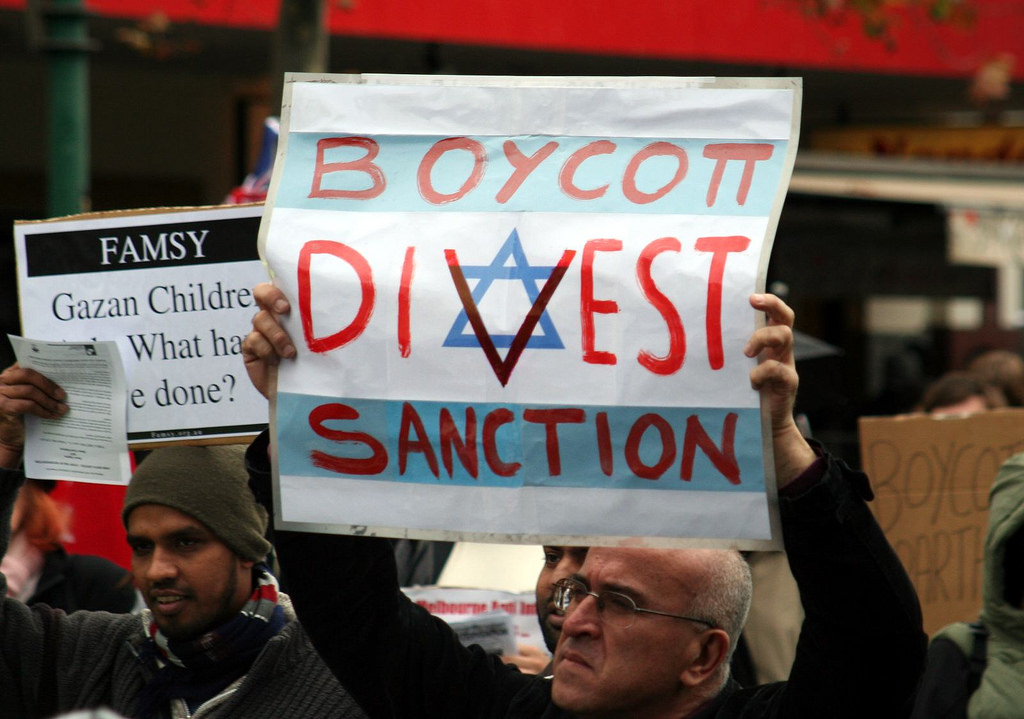 Photo from Wikimedia Commons.
Photo from Wikimedia Commons. Law professors and Jewish groups have each filed separate briefs urging the United States Court of Appeals for the Fifth Circuit to overturn a January ruling finding Texas’ anti-Boycott, Divestment and Sanctions (BDS) law unconstitutional.
The law, which bars the state government from entering contracts with those who boycott Israel, was declared a violation of a Palestinian contractor’s freedom of speech. Eighteen law professors––including former Harvard Law School Professor Alan Dershowitz and George Mason University Law Professor Eugene Kontorovich—filed a brief supporting the law on April 21. The brief argued that commercial activity is not protected under the First Amendment and that the law “only prohibits the government from contracting with a company that engages in particular boycotts, which themselves remain entirely legal.” The law also defines a “boycott” as a contractor refusing to conduct commercial activity with Israel or someone based in the Jewish state for the sole purpose of inflicting “economic harm” on Israel.
They also noted that under the logic of the ruling, other anti-discrimination laws would be overturned as well. “Many state and local laws prohibit the government from funding or doing business with persons and businesses that discriminate against LGBTQ Americans, regardless of the boycotter’s religious, moral, or ideological opposition to gay marriage or other actions of LGBTQ Americans,” the professors wrote in the brief. “California, for example, refuses to provide state funding or sponsorship of travel for state employees and contractors to states whose laws on ‘sexual orientation, gender identity, or gender expression’ do not meet with California’s approval.” “Arguments that anti-BDS laws violate the Constitution threaten to put Jews outside the protection of anti-discrimination principles,” Kontorovich said in a statement.
The Louis Brandeis Center for Human Rights and Hadassah, The Women’s Zionist Organization of America, also filed a similar brief on April 21. Kenneth Marcus, founder and chairman of the Brandeis Center and former Assistant Secretary of Education for Civil Rights, told the Journal: “We are arguing that what the state of Texas has done is simply to condition government contracts on an agreement not to engage in discriminatory conduct. It is fairly standard to place conditions on government contracts––including discriminatory provisions––and what we’re saying is there should not be an Israel exception.”
Marcus was optimistic that the appeals court would overturn the lower court’s ruling; however, if the appeals court were to side with the lower court, then it would “create a terrible precedent,” he argued. “It would create an Israel exception to anti-discrimination law that could be used against Jewish Americans, not just in government contracting but on college campuses, in the workplace and elsewhere.” Marcus added: “The reasoning that the court uses could be used to deny the notion that BDS is antisemitic and that the so-called ‘new antisemitism’ is a form of bigotry.”























 More news and opinions than at a Shabbat dinner, right in your inbox.
More news and opinions than at a Shabbat dinner, right in your inbox.